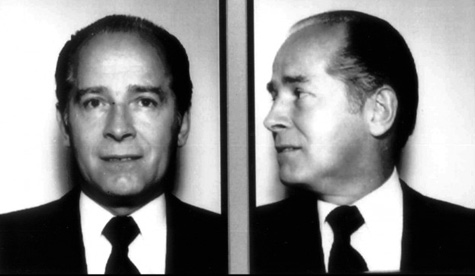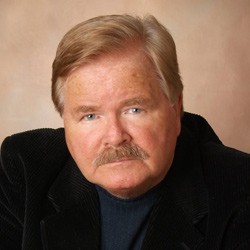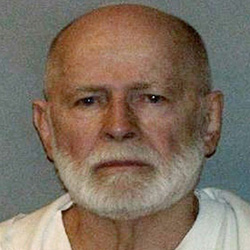
Because only Bulger had the FBI and the Justice Department acting as willing accomplices in his murderous rise to the pinnacle of the criminal underworld.

[Bulger:] “I never got your name.”
“That’s ‘cause you didn’t shake my hand. It’s Fitzpatrick.”
“You don’t understand. I was in Alcatraz; I was in the toughest penitentiaries. I’m a bad guy, not somebody you wanna come out here and mess with.”
“Is that what I’m doing, Whitey, messing with you?”
“You tell me.”
“I just asked you.”
“You got any idea of the stuff I’ve done?”
[Fitzpatrick:] “That’s why I’m here, to find out what you’ve done and what you’re doing for us. See, you wanna tell me about all the stuff you’ve done when I want to hear what you’re doing for me. Because you’re the informant. Whitey, what are you doing for the FBI? What are you doing for me?”
The answer, it indeed turned out, was nothing. Yet instead of taking Fitzpatrick’s advice and targeting Bulger, the FBI did nothing. The Justice Department through Jeremiah O’Sullivan, head of the Organized Crime Strike Force for New England, did nothing. No less than William Weld, then the U.S. Attorney for Massachusetts and future governor of the State, did nothing. Even though Fitzpatrick warned them repeatedly. Even when no fewer than three informants capable of proving everything he said was true were murdered thanks directly to sources inside the Boston FBI office who leaked the names of those informants to Bulger, assuring their deaths.
The question for more rational minds, of course, is how exactly did this happen? To find the answer, we need go back to J. Edgar Hoover and the FBI’s get-the-Mafia-at-all-costs strategy in the 1960s which led to an unholy alliance where the Bureau found itself beholden to gangsters they then protected at all cost. One pair of FBI agents, Dennis Condon and Paul Rico, went so far as to pin a murder committed by their TE informant Joseph Barboza on four innocent men who ultimately went to prison. Later this culture of corruption led agents in the Boston office to first court Whitey Bulger and then become a willing accomplice in his meteoric rise to power as a criminal kingpin.
But that very same culture of corruption extended far beyond Boston. Fitzpatrick warned officials at the very highest levels of the FBI in Washington what was happening. They did nothing. Fitzpatrick told Jeremiah O’Sullivan and then William Weld that an informant he’d turned named Brian Halloran needed to be placed in the Witness Protection Program. They refused and Halloran was gunned down on a South Boston street weeks later. Fitzpatrick reported his own superior for being the possible leak behind the murder of yet another informant named John McIntyre who could have given up Bulger. No action was taken. And, meanwhile, Whitey Bulger was consolidating the power the FBI had enabled him to seize in the first place.

Sound crazy? As a fiction writer, of thrillers specifically, no one would believe this possible or credible had I made it up. Bob Fitzpatrick wasn’t just any agent either. Before coming to Boston, his major case experience included playing a key role in the takedown of Sam Bowers in the famed Mississippi Burning case, leading the investigation into the Martin Luther King assassination, and running ABSCAM in Miami. The Bureau had the right man for the job in Boston all right; they just wouldn’t let him finish it.
In a 2006 deposition in a case filed by the family of one of Fitzpatrick’s murdered informants against the Justice Department, he was asked about filing a report with FBI headquarters detailing his suspicions about how that informant’s name had been leaked and by whom.
“And what, if anything, was done as a result of that report?” the lawyer asked him.
“Nothing,” Fitzpatrick replied.
Novelist Jon Land teamed with Bob Fitzpatrick to co-author Betrayal (Forge, January 3), chronicling Fitzpatrick’s failed efforts to bring down Whitey Bulger and his ultimate vindication decades later. Land is also the author of numerous bestsellers, most recently the Caitlin Strong Texas Ranger series that includes Strong Enough to Die, Strong Justice and Strong at the Break.

The entire story of Whitey Bolger’s career is fascinating. I am so looking forward to reading Betrayal, as Bob Fitzpatrick’s view of all this must be unique.